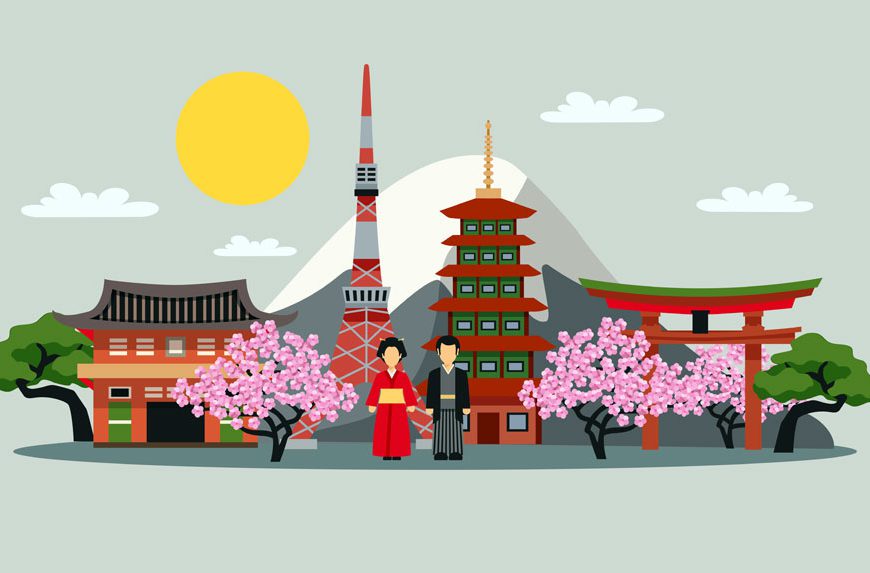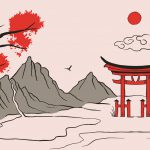Each year, on the 3rd of November, the Japanese people come together as one to celebrate Culture Day. This national holiday exists for the sole purpose of promoting the nation’s arts and academic endeavours as well as honouring its culture.
Also known as Bunka no Hi, this ingenious festivity witnesses many different events. In this article, we will unravel the rich history of Japanese Culture Day and highlight some of the notable events.
History Of Japanese Culture Day
In 1868, November 3rd observed Tenchō-setsu (天長節), a national holiday dedicated to honouring the reigning Emperor Meiji‘s birthday. However, this holiday soon ceased to exist following his death in 1912. Then, in 1948, two years after the announcement of the Constitution of Japan, November 3rd became Culture Day, an emblem to commemorate this notable feat.
Emperor Meiji‘s birthday was given its own holiday, called Meiji-setsu (明治節).
Each year on Culture Day, the Land of the Rising Sun witnesses a plethora of festivities to promote its culture, art and education system. Museums are opened to the public for free to educate them on the cultural heritage of Japan and its people.
Moreover, this is a particularly significant day for students and educational institutions as it also focuses on academic endeavours. Students get to participate in talent shows where they are able to display their artwork or other projects.
How Is Culture Day Celebrated In Japan?
From award ceremonies and parades to talent shows and other extravaganzas, there are many events that you can encounter during Culture Day in Japan. Although November 3rd marks the national holiday for this occasion, the celebration can last for days. Here are some of the most noteworthy events of Japanese Culture Day.
1. Order of Culture:
Founded on February 11, 1937, the Japanese Order of Culture is an order bestowed upon Japanese people who have made outstanding contributions in the fields of art, literature, science, technology, education and culture of Japan. Recipients of this order receive a lifetime annuity. You can watch the annual award ceremony, which is held on the 3rd of November.
2. Decoration Of Japan Maritime Self-Defence Force:
On this day, you can marvel at the Japanese self-defence ships adorned with flags and decorations as they dock in bases and ports.
3. Free Entry To Museums And Galleries:
If you want to get insights into the rich and interesting history of Japan and its cultural heritage, November 3rd is the perfect day to do so, as many museums will be opened to the public for free on this day. Moreover, you will also be able to enter many art galleries without paying an entrance fee. The local art exhibitions are something that many people look forward to every year.
4. Hakone Daimyo Gyoretsu:
This annual lord parade has been around since 1935 in Hakone, a mountainous town near Mount Fuji. From the procession of armoured samurai to marching bands to traditional dance routines, there are many distinct and exciting numbers to see during the Hakone Daimyo Gyoretsu. Just make sure that you are on the streets of Yumoto Onsen district between 10 in the morning to 2:30 in the afternoon.
5. Art Festival:
During the Culture Day of Japan, the Agency for Cultural Affairs, which is a part of the Japanese Ministry of Education, Culture, Sports, Science and Technology (MEXT), organises an art festival in hopes of promoting Japanese arts and culture. You can appreciate remarkable works of art from Japan and enjoy various performances.
6. Meiji Shrine Autumn Festival:
This event dedicated to the birthday of the late Emperor Meiji takes place for three days. Traditional Japanese music and dances, dance dramas, self-defence martial art, horseback archery, and the sumo ring entering ceremony are some mesmerising events you can look forward to.
Frequently Asked Questions about Culture Day In Japan?
Q1. What is unique about Japanese culture?
The amalgamation of old and new traditions is what makes Japanese culture the most unique. While Japanese traditions and customs are still deeply rooted in their old ones, the people are also very much influenced by their newly-adopted ones.
Q2. What is Japan famous for?
The word Japan is associated with many words. Japan is widely known as the home of manga, sushi, bullet trains, ramen, cherry blossoms, Mount Fuji, and karaoke, to name a few.
Q3. What are some cultural traditions in Japan?
Here are some of the most common Japanese cultural traditions that you can follow:
- Bow when you greet someone.
- Remove your shoes before you enter someone’s house.
- Wear a mask if and when you are sick.
- It is not customary to tip people.
- Use both hands to receive gifts.
- Bathe before entering hot springs.
- Always put your chopsticks down in front of you, with the end facing the right and the tips pointing toward the left once you are done eating.
Conclusion: As the Culture Day of Japan 2022 is getting closer by the day, if you plan to be a part of it, we advise that you make your travel arrangements soon. We hope this article helps you in understanding more about Japanese Culture day and helps you navigate which events you want to experience.
We will leave you here with our best wishes!
Until next time, Sayonara for now!




